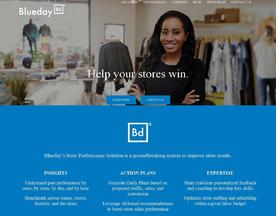What are business startup ideas? Business startup ideas are innovative concepts for new ventures, offering unique products or services to meet market needs or gaps, aiming for growth.
Starting a business is a dream for many entrepreneurs who want to turn their ideas into reality. However, coming up with a unique business startup ideas can be a challenging task. With so many options available, it can be overwhelming to decide which business startup ideas to pursue. This article will provide some guidance on how to identify your niche, develop your business startup ideas, create a business plan, secure funding, build your brand, and launch and grow your business.

Identifying your niche is the first step in developing a successful business startup ideas. It’s important to research the market and identify a gap that your business can fill. This could be a new product or service, or an improvement on an existing one. Once you have identified your niche, you can start developing your business startup ideas.
Creating a business plan is crucial for any business startup ideas. It helps to define your goals, identify your target market, and outline your strategies for success. A well-written business plan can also help you secure funding and manage your finances effectively. With solid business startup ideas and a business plan in place, you can launch your business startup ideas confidently and work towards achieving your goals.
Key Takeaways
- Identifying your niche is crucial for developing a successful business startup ideas.
- Creating a solid business plan is essential for securing funding and managing finances effectively.
- Launching and growing your business startup ideas requires a well-defined strategy and a strong brand identity.
Identifying Your Niche
Business startup ideas can be an exciting and rewarding venture, but it can also be overwhelming. One of the most important steps in launching a successful business is identifying your niche. This involves finding a profitable and sustainable market that aligns with your passions, interests, and strengths. Here are some tips for identifying your niche:
Assessing Your Passions and Skills
One of the first steps in identifying your niche is to assess your passions and skills. What do you enjoy doing? What are you good at? By answering these questions, you can start to brainstorm small business startup ideas that align with your interests and strengths. For example, if you love cooking and have a talent for creating unique recipes, you might consider starting a catering business or opening a restaurant.
Market Research and Identifying Gaps
Once you have a list of potential business startup ideas, it’s important to conduct market research to determine if there is a demand for your product or service. This involves identifying gaps in the market that your business startup ideas can fill. Look for areas where there is a need for a new or improved product or service. You can also use online tools to research your target market and identify trends and opportunities.
Analyzing Competitors and Demand
Another important step in identifying your niche is to analyze your competitors and demand. Who are your competitors? What are they doing well, and where are they falling short? By analyzing your competitors, you can identify areas where you can differentiate yourself and offer something unique to your customers. You should also assess the demand for your product or service by looking at industry trends, customer feedback, and other data.
By following these steps, you can identify a profitable and sustainable niche that aligns with your passions and skills. Remember to stay focused and be patient, as launching successful business startup ideas takes time and effort. For more information on identifying your niche, check out this resource from Entrepreneur.
Developing Your Business Startup Ideas
Starting a business can be an exciting journey, but it all begins with a great idea. Developing a business startup ideas involves several steps, including brainstorming, validating the idea, and defining a unique value proposition.
Brainstorming and Ideation
The first step in developing a business startup ideas is to brainstorm and come up with potential ideas. This can be done by identifying problems and needs in the market and exploring potential solutions. It’s important to think creatively and consider different angles to approach the problem.
One helpful tool for brainstorming is mind mapping. This involves creating a visual diagram of ideas and connections to help generate new ideas. Another approach is to conduct market research to identify gaps in the market and uncover potential opportunities.
Validating the Idea
Once business startup ideas have been generated, it’s important to validate it to ensure it has potential for success. This involves conducting market research to determine if there is a demand for the product or service and if there is potential for profitability.
One way to validate a business startup ideas is to create a landing page or prototype to test the market and gather feedback. This can help identify any potential issues and refine the idea before investing too much time and resources.
Defining Unique Value Proposition
A unique value proposition (UVP) is what sets a business startup ideas apart from its competitors and communicates the value it provides to customers. Defining a UVP involves identifying the key benefits of the product or service and communicating them in a clear and concise manner.
One way to define a UVP is to conduct a SWOT analysis, which identifies the business’s strengths, weaknesses, opportunities, and threats. This can help identify areas where the business can differentiate itself from competitors and communicate its unique value proposition.
In conclusion, developing business startup ideas involves several steps, including brainstorming and ideation, validating the idea, and defining a unique value proposition. By following these steps and conducting thorough research, entrepreneurs can increase their chances of success and create profitable small business startup ideas. For more information on developing business startup ideas, check out this resource from Entrepreneur.
Creating a Business Plan
Creating a business plan is the first step towards starting a successful business. A business plan is a written document that outlines the goals, strategies, and financial projections of a new business. It is essential to have a well-written business plan to attract investors, secure loans, and guide the business towards success.
Executive Summary
The executive summary is the most critical part of the business plan. It is a brief overview of the entire plan, highlighting the key points and objectives. It should be concise, clear and compelling, and should capture the reader’s attention. The executive summary should include the business’s mission statement, market analysis, marketing and sales strategies, financial projections, and recommendations.
Marketing and Sales Strategies
Marketing and sales strategies are critical components of a business plan. It is essential to identify the target market and understand their needs and preferences. The marketing strategy should include a comprehensive analysis of the competition, pricing, and promotion strategies. The sales strategy should include a plan for selling products or services, such as through online platforms, retail stores, or direct sales.
Financial Projections
Financial projections are an essential part of the business plan. It is essential to have a realistic financial plan that includes revenue and expense projections, cash flow analysis, and break-even analysis. The financial plan should also include a plan for funding the business, such as through loans, grants, or investors. It is important to have a contingency plan in case of unforeseen events.
In conclusion, creating a business plan is a crucial step towards starting a successful business. It is important to have a well-written plan that includes the business’s mission statement, market analysis, marketing and sales strategies, financial projections, and recommendations. By following the guidelines outlined above, entrepreneurs can create a comprehensive and compelling business plan that will guide their business towards success.
For more information on creating a business plan, please visit Entrepreneur.com – a high authority resource on this topic.
Securing Funding and Managing Finances

Starting up the business startup ideas requires a significant amount of financial investment, and securing funding is a crucial step in the process. There are various funding options available to entrepreneurs, and it’s essential to explore them to determine which one is the best fit for their business.
Exploring Funding Options
Entrepreneurs can secure funding from various sources, including personal savings, loans from friends and family, crowdfunding, angel investors, venture capitalists, and grants. Each funding option has its pros and cons, and entrepreneurs must evaluate them carefully before making a decision.
Personal savings are an excellent option for entrepreneurs who have saved enough money to start their business. Loans from friends and family can also be a viable option, but it’s crucial to have a written agreement to avoid any misunderstandings.
Crowdfunding has become a popular option in recent years, and it involves raising funds from a large number of people through online platforms. Angel investors and venture capitalists are another option, but they usually require a significant equity stake in the business.
Grants are also available for entrepreneurs who meet specific criteria, such as being a minority-owned business or having a focus on innovation.
Budgeting and Cost Management
Once entrepreneurs have secured funding, they must manage their finances carefully to ensure that they don’t run out of money before their business startup ideas become profitable. Budgeting and cost management are essential skills for any entrepreneur.
Creating a budget involves estimating the startup costs and ongoing expenses of the business. This includes rent, utilities, salaries, marketing, and any other expenses that the business startup ideas will incur. Entrepreneurs must also factor in unexpected expenses and have a contingency plan in case of emergencies.
Cost management involves monitoring the business’s expenses and finding ways to reduce them without compromising the quality of the product or service. This can include negotiating with suppliers, finding more cost-effective marketing strategies, and reducing overhead costs.
Accounting and Bookkeeping Basics
Entrepreneurs must also have a basic understanding of accounting and bookkeeping to manage their finances effectively. This includes keeping accurate records of all financial transactions, including income and expenses, and reconciling bank statements.
Entrepreneurs can use accounting software to simplify the bookkeeping process and generate financial reports. It’s also essential to hire a professional accountant to ensure that the business startup ideas comply with tax laws and regulations.
In conclusion, securing funding and managing finances are critical steps in starting a business. Entrepreneurs must explore funding options, create a budget, manage costs, and have a basic understanding of accounting and bookkeeping. By following these steps, entrepreneurs can increase their chances of success and avoid financial pitfalls.
Here is a resource from the Small Business Administration that provides more information on funding options for small businesses.
Building Your Brand

Starting business startup ideas requires more than just a great idea. Building a strong brand is essential to attracting customers and establishing a loyal following. In this section, we will explore the key steps to developing a successful brand identity, creating a strong online presence, and leveraging social media to grow your business.
Developing a Brand Identity
Your brand identity is the way your business startup ideas are perceived by your customers. It includes your company name, logo, color scheme, and overall visual style. Developing a strong brand identity is crucial to standing out in a crowded marketplace. To create a memorable brand, consider the following:
- Define your target audience and tailor your messaging to their needs and interests.
- Choose a unique company name that is easy to remember and reflects your brand’s personality.
- Design a logo that is simple, visually appealing, and communicates your brand’s values.
- Establish a consistent color scheme and visual style that is used across all marketing materials.
For more information on developing a brand identity, check out this guide from Entrepreneur.
Creating a Strong Online Presence
In today’s digital age, having a strong online presence is essential to the success of any business. Your website is often the first impression potential customers will have of your brand, so it’s important to make it count. To create a strong online presence, consider the following:
- Develop a user-friendly website that is easy to navigate and visually appealing.
- Optimize your website for search engines to improve your visibility online.
- Create high-quality content that is relevant to your target audience.
- Utilize email marketing to stay in touch with customers and promote new products or services.
For more information on creating a strong online presence, check out this article from Forbes.
Leveraging Social Media
Social media is a powerful tool for building brand awareness and engaging with customers. With platforms like Instagram and TikTok, businesses can reach a wider audience and create a more personal connection with their customers. To leverage social media effectively, consider the following:
- Choose the right platforms for your target audience and create a consistent brand voice across all channels.
- Create engaging content that is relevant to your audience and encourages interaction.
- Utilize paid advertising to reach a wider audience and promote new products or services.
- Monitor your social media presence and respond to customer feedback in a timely manner.
For more information on leveraging social media, check out this guide from HubSpot.
Launching Your Business

Starting a business can be an exciting and rewarding experience. However, it can also be overwhelming and stressful. This section will provide some guidance on how to launch your business startup ideas successfully.
Setting Up Your Business Structure
One of the first things to consider when starting business startup ideas is the legal structure. This will determine how the business startup ideas are taxed, how profits and losses are distributed, and the level of personal liability. The most common business startup ideas structures are sole proprietorship, partnership, limited liability company (LLC), and corporation. Each structure has its own advantages and disadvantages, so it is important to research and choose the one that best suits your needs.
Compliance and Legal Considerations
Compliance and legal considerations are crucial when starting a business. It is important to register the business startup ideas with the appropriate state and federal agencies, obtain any necessary licenses and permits, and comply with all relevant laws and regulations. Failure to do so can result in fines, penalties, and legal trouble. It is also important to have a solid understanding of intellectual property laws, such as trademarks, patents, and copyrights, to protect the business’s assets.
Grand Opening Strategies
A successful grand opening can generate excitement and buzz around the business. Some strategies to consider include hosting an event, offering promotions and discounts, and partnering with other businesses or influencers. It is also important to have a strong online presence, including a website and social media accounts, to reach a wider audience and promote the grand opening.
For more information on launching a business, check out the Small Business Administration’s guide to starting a business.
Growing Your Business

As a small business owner, growing your business startup ideas is a crucial step towards achieving long-term success. There are several strategies that can help you expand your business, scale operations, and build a loyal customer base.
Expanding Your Product or Service Line
One way to grow your business startup ideas is by expanding your product or service line. This can be achieved by introducing new products or services that complement your existing offerings. By doing so, you can attract new customers and increase sales from existing customers.
Before introducing new products or services, it’s important to conduct market research to identify gaps in the market and understand the needs and preferences of your target audience. This will help you develop products or services that are in demand and have a higher chance of success.
Scaling Operations
Scaling operations is another important step towards growing your business. This involves increasing production capacity, improving efficiency, and reducing costs. By doing so, you can increase output and revenue without incurring significant additional costs.
To scale operations, it’s important to identify areas where improvements can be made. This may involve investing in new technology, hiring additional staff, or streamlining processes. By doing so, you can increase productivity and reduce costs, which can help you achieve long-term growth.
Building a Customer Base
Building a loyal customer base is essential for long-term success. This involves developing a strong brand identity, providing exceptional customer service, and implementing effective marketing strategies.
To build a loyal customer base, it’s important to understand the needs and preferences of your target audience and develop products or services that meet those needs. It’s also important to provide exceptional customer service and engage with customers through social media and other channels.
Effective marketing strategies can also help you build a loyal customer base. This may involve creating targeted advertising campaigns, offering promotions and discounts, and leveraging social media and other digital marketing channels.
Overall, growing your business startup ideas requires a combination of strategies, including expanding your product or service line, scaling operations, and building a loyal customer base. By implementing these strategies, small businesses can achieve long-term success and compete effectively in their respective markets.
Here is a helpful resource for more information on growing your business.
Online Business Opportunities

Starting online business startup ideas has never been easier, thanks to the internet. With the right idea and execution, anyone can create a successful online business. Here are some online business startup ideas and opportunities for those looking to start their own venture.
E-Commerce and Dropshipping
E-commerce has revolutionized the way people shop. Online stores have made it possible for people to buy products from anywhere in the world, at any time. Dropshipping is a type of e-commerce business where the store owner does not keep the products in stock. Instead, the products are shipped directly from the supplier to the customer.
Starting a dropshipping business requires minimal investment, making it a popular choice for entrepreneurs. However, it is important to find the right supplier and choose a profitable niche. A good place to start is by researching popular products on platforms like Amazon and eBay.
Digital Content Creation
With the rise of social media and digital marketing, there is a growing demand for digital content creators. Blogging, vlogging, and podcasting are popular ways to create content and build a following. Digital content creators can monetize their content through advertising, sponsorships, and affiliate marketing.
Starting a blog requires minimal investment, but it takes time and effort to build an audience. Content creators need to find a niche and create high-quality content that resonates with their target audience. A good place to start is by researching popular blogs in the chosen niche and identifying gaps that can be filled.
Tech Startups and App Development
The tech industry is booming, and there is a growing demand for innovative solutions. Tech startups and app development are popular online business opportunities for those with a technical background. The key to success in this industry is to identify a problem and create a solution that is user-friendly and scalable.
Starting a tech startup or app development requires a significant investment, but there are many resources available for funding. Entrepreneurs can pitch their ideas to venture capitalists, angel investors, and crowdfunding platforms. A good place to start is by researching successful startups and identifying their funding sources.
In conclusion, there are many online business opportunities for those looking to start their own venture. E-commerce and dropshipping, digital content creation, and tech startups and app development are just a few examples. With the right idea and execution, anyone can create a successful online business. For more information on starting an online business, check out this guide from Entrepreneur.
Service-Based Business Startup Ideas

Starting a service-based business can be a great way to turn your skills and expertise into a profitable venture. Here are a few service-based business startup ideas to consider:
Consulting and Coaching Services
Consulting and coaching services are in high demand across a variety of industries. Whether you have experience in business, finance, marketing, or another field, you can leverage your expertise to help others succeed. Some examples of consulting and coaching services include:
- Business consulting
- Life coaching
- Financial consulting
- Marketing consulting
One great resource for aspiring consultants is the Institute of Management Consultants. This organization offers a variety of resources and training programs to help individuals start and grow successful consulting businesses.
Personal and Home Services
Personal and home services are another popular area for service-based businesses. These businesses typically provide services that help individuals and families manage their day-to-day lives. Some examples of personal and home services include:
- Cleaning services
- Personal shopping and errand services
- Pet care services
- Home organization services
If you’re interested in starting a personal or home services business, be sure to check out the International Association of Home Staging Professionals. This organization provides training and certification for home staging professionals, as well as resources for starting and growing a successful business.
Event Planning and Catering
Event planning and catering businesses can be a great option for individuals who enjoy planning and hosting events. These businesses typically provide services for weddings, corporate events, and other special occasions. Some examples of event planning and catering services include:
- Wedding planning
- Corporate event planning
- Catering services
- Party planning
The International Live Events Association is a great resource for aspiring event planners and caterers. This organization provides resources and training programs to help individuals start and grow successful event planning and catering businesses.
Starting a service-based business can be a rewarding and profitable venture. By leveraging your skills and expertise, you can help others succeed while building a successful business of your own.
Creative and Freelance Business Ventures

Starting a creative or freelance business venture can be a great way to turn your passion into a profitable business. With the rise of the gig economy and the increasing demand for creative services, there has never been a better time to start your own business.
Photography and Videography Services
Photography and videography services are in high demand for both personal and commercial purposes. Whether it’s capturing special moments at weddings or creating promotional videos for businesses, there is a wide range of opportunities for photographers and videographers.
To start a photography or videography business, it’s important to have a strong portfolio and to invest in high-quality equipment. Building a strong online presence through social media and a professional website can also help attract clients.
One external resource that can be helpful for those starting a photography or videography business is PetaPixel, a leading photography blog that provides tips, news, and inspiration for photographers of all levels.
Writing and Content Creation
Freelance writing and content creation is another popular business venture for creative individuals. Ghostwriting, copywriting, and content creation for websites and social media are just a few examples of the types of services that writers can offer.
To succeed in this field, it’s important to have strong writing skills and a niche or area of expertise. Building a portfolio of writing samples and networking with potential clients can also help attract business.
One external resource that can be helpful for those starting a writing or content creation business is Copyblogger, a leading blog that provides tips and resources for writers and content creators.
Design and Branding Services
Graphic design and branding services are also in high demand for businesses and individuals. From creating logos and branding materials to designing websites and marketing materials, there are many opportunities for designers to start their own business.
To start a design or branding business, it’s important to have a strong portfolio and to stay up-to-date with current design trends and software. Building a strong online presence through social media and a professional website can also help attract clients.
One external resource that can be helpful for those starting a design or branding business is Creative Bloq, a leading design blog that provides inspiration, tutorials, and resources for designers of all levels.
Specialized and Niche Markets

Starting a business in a specialized or niche market can be a smart move for entrepreneurs who have expertise in a specific area. These markets often have a smaller customer base, but they also have less competition, which can lead to higher profits.
Healthcare and Wellness
Healthcare and wellness are two areas that are always in demand. Starting a business in this field can be challenging, but it can also be rewarding. One option is to offer specialized healthcare services, such as physical therapy or chiropractic care. Another option is to offer wellness services, such as yoga or meditation classes.
One example of a successful healthcare and wellness business is Mindbody, a software company that provides tools for wellness businesses to manage their operations. Mindbody has over 58,000 business customers and has processed over 2 billion bookings.
Pet Services
Pet services are another niche market that can be lucrative. Pet owners are often willing to spend money on their furry friends, and there are many different types of pet services that can be offered. These include pet sitting, dog walking, pet grooming, and pet products.
One example of a successful pet services business is Rover, a platform that connects pet owners with local pet sitters and dog walkers. Rover has over 300,000 sitters and walkers in its network and has been featured in publications such as Forbes and The New York Times.
Sustainable and Eco-Friendly Businesses
Sustainability and eco-friendliness are becoming increasingly important to consumers. Starting a business that focuses on these values can be a smart move. This can include businesses that sell eco-friendly products, offer sustainable services, or focus on reducing waste.
One example of a successful sustainable business is Patagonia, a clothing company that is committed to sustainability and ethical business practices. Patagonia has been recognized for its efforts, including being named one of the World’s Most Ethical Companies by Ethisphere Institute for nine years in a row.
Overall, starting a business in a specialized or niche market can be a smart move for entrepreneurs who have expertise in a specific area. By focusing on a smaller customer base and providing specialized services or products, businesses can stand out from the competition and achieve success.
Utilizing Technology and Innovation

With the rise of technology and innovation, there are now more opportunities than ever to start a successful business. Here are a few ways entrepreneurs can leverage technology and innovation to create a successful startup:
Tech Gadgets and Accessories
One way to start a business is by selling tech gadgets and accessories. With the increasing popularity of smart devices, there is a growing demand for accessories such as phone cases, screen protectors, and chargers. Entrepreneurs can also consider creating their own tech gadgets, such as wearable technology or smart home devices. By staying on top of the latest trends and advancements in technology, entrepreneurs can create a profitable business in this space.
Online Courses and Education
Another way to leverage technology is by creating an online course or education platform. With the rise of e-learning, there is a growing demand for online courses and education. Entrepreneurs can create courses on a variety of topics, from programming and web development to marketing and business management. By creating high-quality courses and marketing them effectively, entrepreneurs can build a successful business in the online education space.
Subscription-Based Models
Subscription-based models are another way to leverage technology and innovation. Subscription boxes have become increasingly popular in recent years, with companies offering everything from beauty products to snacks to pet supplies. Entrepreneurs can also create subscription-based services, such as software-as-a-service (SaaS) or subscription-based consulting. By providing a recurring revenue stream, subscription-based models can help entrepreneurs build a sustainable business.
By utilizing technology and innovation, entrepreneurs can create successful startups in a variety of industries. Whether it’s selling tech gadgets and accessories, creating online courses and education platforms, or leveraging subscription-based models, there are plenty of opportunities for entrepreneurs to build a profitable business. To learn more about starting a tech-based business, check out this article from Entrepreneur.
Frequently Asked Questions

What are some low-cost, high-profit business startup ideas?
Starting a business with low investment is a smart move for any entrepreneur. Some low-cost, high-profit business startup ideas include online tutoring, social media management, content writing, and web design. These businesses require minimal investment, and they can generate a high return on investment (ROI).
What are the most successful types of small businesses to start?
The most successful types of small businesses to start are those that fulfill a need in the market. Some of the most successful small businesses are food trucks, mobile car detailing, pet grooming, and cleaning services. These businesses require minimal investment and can generate high profits if done correctly.
What are some unique business startup ideas for entrepreneurs?
Unique business startup ideas for entrepreneurs include creating a mobile app, starting a subscription box service, or launching a personalized gift service. These businesses require creativity and innovation to stand out in the market.
What are the best businesses to start from home?
Starting a business from home has become increasingly popular over the years. Some of the best businesses to start from home include freelance writing, graphic design, virtual bookkeeping, and online tutoring. These businesses require minimal investment and can be started from the comfort of your own home.
What is the easiest business to begin for first-time entrepreneurs?
The easiest business to begin for first-time entrepreneurs is a service-based business. Some examples of service-based businesses include lawn care, cleaning services, pet grooming, and tutoring. These businesses require minimal investment and can generate high profits if done correctly.
What are the most viable business startup ideas for a $10,000 budget?
With a $10,000 budget, there are several viable business startup ideas that an entrepreneur can pursue. Some of the most viable business startup ideas include starting a food truck, opening a boutique, or launching an online store. These businesses require some investment, but they can generate high profits if done correctly.
For more information on starting a business, check out the Small Business Administration.















